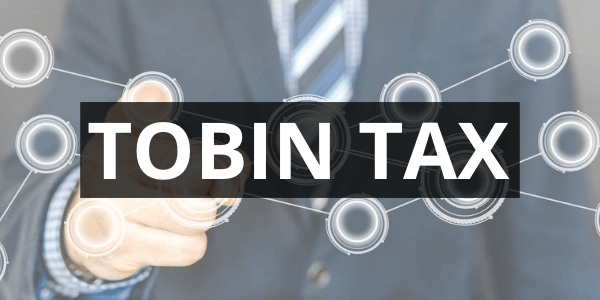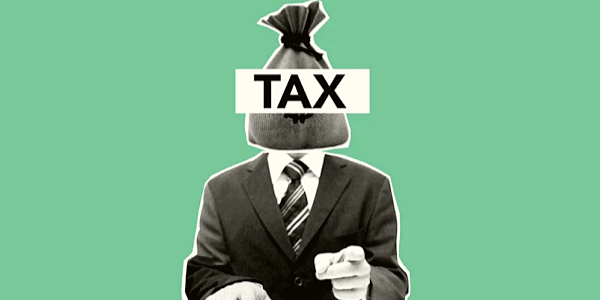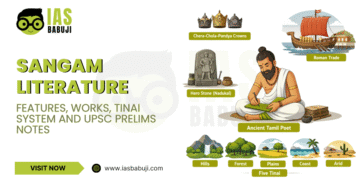The Tobin Tax is explained in this article. Learn what the Tobin Tax is, it’s Meaning and what it refers to, as well as how important it is in the UPSC test. The information in this post will help you pass the IAS Exam. So, without further ado, let’s get started.
What is Tobin Tax?
A Tobin tax was first described and accepted as a charge on all spot currency changes, as proposed or defined by Nobel Laureate in Economic Sciences James Tobin. The initial intent of the mission was to levy a penalty on short-term financial transactions in another currency. Instead of consumers paying a fee, market participants would pay the Tobin tax in order to ensure currency stability. This is the meaning of the Tobin tax.
- The charge was established in order to reduce currency volatility. James Tobin advocated two solutions to this problem: a standard monetary, currency, and fiscal policy, as well as economic integration.
- It makes an effort to increase financial segmentation between countries. It is giving central banks and governments more flexibility in their financial policies.
- The Tobin tax is also referred as the Robin Hood tax. Because many people believe it is a means for governments to take modest amounts of money from people. Who make significant, short-term currency exchanges.

Tobin Tax: Background
In 1971, the flow of funds between countries increased, posing a threat to global economic stability.
When variable exchange rates replaced the fixed exchange rates of the Bretton Woods system, this happened.
By boosting short-term currency speculation, the unrestricted currency market increased the economic costs of governments transferring currencies.
- As a result, the Tobin tax was implemented in order to address these issues.
- A number of European countries ratified it in order to deter short-term currency speculation and stabilize global currency markets.
Tobin’s Tax information is crucial for the UPSC exam. Now that we know the meaning of the Tobin tax and what it refers to. Let’s learn more about its requirements, benefits, and other details. But first, let’s take a look at another important UPSC topic: The Gig Economy. You will learn about the problems, platforms, effects, and issues relating to India’s gig economy, among other things.
Tobin Tax: Needs and Benefits
Needs:
- Because they are speculative, short-term capital flows (movt of foreign investable money) are extremely volatile.
- Many emerging market central banks, such as India’s RBI, face management challenges as a result of frequent inflows and outflows of short-term capital.
- The Tobin tax is a speculative tax that limits the movement of volatile short-term financial movements, sometimes refers as hot money.
Benefits:
It gives the government and central banks time to make the required adjustments to counteract outflows and inflows’ disruptive effects.
- The time it takes to pay taxes slows the movement of capital in and out of the country.
- Capital tax or Tobin tax revenue can be utilized for social development, which is especially useful to develop countries. Short-term speculative capital is discouraged by the Tobin tax.

Example Across the World
- Sweden placed a 0.5 percent Tobin tax on stock purchases and sales. However, it did not produce the expected outcomes.
- In 2013, Italy enacted a new tax on high-frequency stock trading, levying a 0.02 percent surcharge on trades that occur every 0.5 seconds or less.
- Belgium, Germany, Estonia, Greece, Spain, France, Italy, Austria, Portugal, Slovenia, and Slovakia have opted to collect a 0.1 percent fee on stock and bond exchanges and a 0.01 percent fee on derivative transactions.
- Thailand, Brazil, Chile, and Malaysia have all experimented with the Tobin tax, with varying outcomes.
- The Securities Transaction Tax, which is a version of the Tobin tax, is enacted in India (STT). It was enacted in 2004 and is charged on every securities and mutual funds transaction registered on stock exchanges.
Limitations
Financial transactions may be reduced as a result of the Tobin tax, resulting in fewer job opportunities. It has the ability to reduce the liquidity of assets. The costs of investing for investors have risen dramatically. Returns on specific funds, such as pension funds, have been reduced. as a result of banks, they are simply passing on tax expenses to their customers.
Scope
The Tobin concept’s scope:
The name “Tobin tax” has been used simultaneously with a specific currency transaction tax (CTT) in the way of Tobin’s original notion and with various ideas of a more general financial transaction tax at other periods (FTT). The numerous conceptions suggested in both cases comprised both national and global concepts. Associating Tobin’s tax with these are some examples:
In April of 2001,
In the debate over restructuring the international financial system, the concept of a Tobin tax has resurfaced. As a result, the United Nations is looking at possible ways to implement a Tobin-style currency transaction tax (CTT) and many legislative initiatives in favor of the Tobin tax in national legislatures.
In December of 2009,
Despite opposition from the US and misgivings within the IMF, European Union leaders encouraged the International Monetary Fund on Friday to examine a global tax on financial transactions. The EU’s 27 national leaders did not make a formal demand for the establishment of a so-called “Tobin tax” in a communique issued following a two-day summit. Still, they did make clear that they saw it as a potentially beneficial revenue-raising mechanism.

Tobin Tax: Evaluation
- One of the most common economic justifications for financial transaction taxes is that they reduce return volatility, resulting in improved long-term investor utility or more stable exchange rate levels. Because Tobin’s primary motivation for enacting this tax was to improve macroeconomic policy autonomy by limiting foreign currency speculation and its destabilizing influence on national exchange rates, the impact of such a tax on volatility is particularly important.
- Though Tobin had stated that his own tax plan was unworkable in practice, Joseph Stiglitz, the former World Bank Senior Vice President & Chief Economist, stated on October 5, 2009, that this was no longer the case due to contemporary technology. Stiglitz said that the tax is “far more possible today” than it was when Tobin reversed his position a few decades ago.
- “Transactions are really difficult to measure. So, therefore, it’s fairly easy to avoid a transaction tax,” Dominique Strauss-Khan, the IMF’s managing director, said at the G20 finance ministers summit in Scotland on November 7, 2009.
- In January 2010, a researcher, Rodney Schmidt, backed up and highlighted the tax’s viability, saying, “It is theoretically simple to collect a financial tax from exchanges. Transaction taxes can be collected at the time of trade or paid automatically during the clearing or settlement process by the central counterparty.

Conclusion
Hopefully, the post provided you with some insight into the issue of Tobin tax, which is also relevant to UPSC. Tobin tax is a financial sector tax designed to penalize short-term currency trading, stabilize markets, and decrease speculative risks. We also went over the meaning, benefits, refer to, and other aspects. So, if you read this essay carefully, you’ll notice that it falls within the category of economics. You can also check the official UPSC website for the most up-to-date information and examination details.
FAQ- Tobin Tax
A tax on securities transactions is known as the Securities Transaction Tax (STT). STT applies to all trades and exchanges on the Bombay Stock Exchange (BSE), the National Stock Exchange (NSE), and other recognized stock exchanges. However, Off-market transactions, as well as commodities and currency transactions, are excluded from STT.
Hedging protects a present investment against unanticipated price fluctuations, but speculating exposes the investor to additional risk that may have been avoided.
Hedging is a method of reducing or eliminating risk. On the other hand, speculation is based on taking risks in the goal of reaping a profit.
Hedging protects against unfavorable price swings. Speculation, on the other hand, entails taking risks in order to profit from price changes.
Hedgers are risk-averse investors who use hedging to protect their investments. Speculators are risk-takers who incur risks on purpose and play an important role in generating liquidity in the market.
The Tobin tax, named after economist James Tobin, is a fee paid on spot currency conversions with the purpose of discouraging short-term currency trading. It is now more technically refers as a Financial Transactions Tax (FTT) or, less formally, a Robin Hood tax.
Editor’s Note | Tobin Tax
In summary, the above post will provide you with information regarding the Tobin tax and why it is important for UPSC. We’ve also gone over Tobin tax meaning, what it is refers to, Needs and benefits, as well as other facts that will help you prepare for your UPSC exam. This is one of the most challenging exams to pass. As a result, hard work and dedication are essential. Keep in mind that you will need to study on time and maintain a decent study schedule while studying for your exam. As a result, don’t be concerned. Begin your UPSC adventure by believing in yourself. Finally, We wish you the best!







